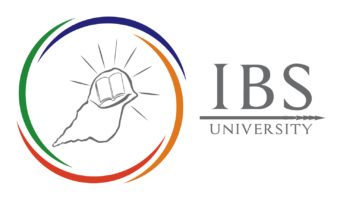Associate Degree in Economics and Development Studies
June 12, 2024 2025-09-08 19:42Associate Degree in Economics and Development Studies
Overview
About This Course
The Associate Degree in Economics and Development Studies forms the first three years of the Bachelor of Economics and Development Studies program offered by the School of Economics and Development Studies. This program is designed to equip students with a deep understanding of economic theories and development practices. Combining academic learning with practical experiences, this three-year course prepares students for successful careers in the economics and development sectors.Key Features:
- Extensive curriculum designed by researching top universities in Australia.
- Opportunities for higher studies and professional certifications such as CPA PNG, CPA Australia, CMA, MAF, MPA, and MBA.
- Focus on individual strengths and skill development.
- Industrial training, internships, and industry visits.
- National and international teaching faculty.
- Career guidance and counselling.
- Placement opportunities in leading industries in PNG.
- Regular seminars, guest lectures, workshops, and conferences.
- Flexible entry and exit options within the programme.
Learning Objectives
By the end of the programme, students will be able to:- Understand and apply core economic theories and development practices.
- Conduct economic research and analyse economic data.
- Formulate and evaluate economic policies.
- Understand global and environmental economic issues.
- Apply quantitative and qualitative analysis tools in economics.
- Gain practical experience through internships and industry practices.
Material Includes
- Comprehensive textbooks and reference materials.
- Access to online learning resources and e-journals.
- Lecture notes and presentations.
- Software and Tools.
- Industrial training and internship opportunities.
Entry Requirements
- Grade 12 or equivalent with minimum ‘C’ level passes in English and Mathematics.
- Minimum GPA of 2.50.
Certification Options
- Completion of Years 1 & 2: Students can obtain a Diploma Certificate.
- Completion of Years 1, 2 & 3: Students can obtain an Associate Degree Certificate.
Target Audience
- Aspiring students interested in pursuing a career in economics and development.
- Individuals aiming for higher studies and professional certifications in economics.
- Students are looking for a comprehensive programme that combines theoretical knowledge with practical experience.
Course Contents
| Year 1 | |
|---|---|
| Semester 1 | Semester 2 |
| (BM0101) Personality Development | (IT0102) Business Mathematics |
| (IT0101) Fundamentals of IT | (BM0104) Fundamentals of Business Practices |
| (BM0102) Principles of Management | (AF0101) Principles of Accounting |
| (BM0103) Business and Academic English | (ED0101) Introduction to Economics |
| Year 2 | |
|---|---|
| Semester 1 | Semester 2 |
| (ED0201) Principles of Microeconomics | (ED0203) Principles of Macroeconomics |
| (IT0209) Business Statistics | (ED0204) Principles of Macroeconomics |
| (ED0202) Financial Markets and Organisation | (ED0205) Internship – Internal Practice |
| (IT0210) Introduction to Calculus | (Group A) Elective 1 |
| Year 3 | |
|---|---|
| Semester 1 | Semester 2 |
| (ED0301) Advanced Microeconomics | (ED0304) Advanced Macroeconomics |
| (ED0302) Global Economics | (ED0305) Cost Benefit Analysis |
| (ED0303) Advanced Econometrics | (ED0306) Economic Policy and Market Design |
| (BM0303) Business Research | (ED0307) Economic Information Systems |
| Elective Subjects |
|---|
| Group A |
| (BM0305) Introduction to Industrial Relations |
| (IT0201) Introduction to Information Systems |
| (BM0201) Business Ethics |
Fee Structure
| Course Fee (3 Years) | PGK 53,400.00 |
| Unit Fee | PGK 2,200.00 |
| Annual Fee (Year 1) | PGK 17,800.00 |
| Annual Fee Breakdown | |
| Registration Fee | PGK 200.00 |
| Semester 1 – Course Fee | PGK 8,800.00 |
| Semester 2 – Course Fee | PGK 8,800.00 |
| Annual Fee (Year 2) | PGK 17,800.00 |
| Annual Fee Breakdown | |
| Registration Fee | PGK 200.00 |
| Semester 1 – Course Fee | PGK 8,800.00 |
| Semester 2 – Course Fee | PGK 8,800.00 |
| Annual Fee (Year 3) | PGK 17,800.00 |
| Annual Fee Breakdown | |
| Registration Fee | PGK 200.00 |
| Semester 1 – Course Fee | PGK 8,800.00 |
| Semester 2 – Course Fee | PGK 8,800.00 |
- Level
- Duration
- Subject
- Language
- Associate Degree
- 3 Years
- Economics
- English
Overview
About This Course
The Associate Degree in Economics and Development Studies forms the first three years of the Bachelor of Economics and Development Studies program offered by the School of Economics and Development Studies. This program is designed to equip students with a deep understanding of economic theories and development practices. Combining academic learning with practical experiences, this three-year course prepares students for successful careers in the economics and development sectors.Key Features:
- Extensive curriculum designed by researching top universities in Australia.
- Opportunities for higher studies and professional certifications such as CPA PNG, CPA Australia, CMA, MAF, MPA, and MBA.
- Focus on individual strengths and skill development.
- Industrial training, internships, and industry visits.
- National and international teaching faculty.
- Career guidance and counselling.
- Placement opportunities in leading industries in PNG.
- Regular seminars, guest lectures, workshops, and conferences.
- Flexible entry and exit options within the programme.
Learning Objectives
By the end of the programme, students will be able to:- Understand and apply core economic theories and development practices.
- Conduct economic research and analyse economic data.
- Formulate and evaluate economic policies.
- Understand global and environmental economic issues.
- Apply quantitative and qualitative analysis tools in economics.
- Gain practical experience through internships and industry practices.
Material Includes
- Comprehensive textbooks and reference materials.
- Access to online learning resources and e-journals.
- Lecture notes and presentations.
- Software and Tools.
- Industrial training and internship opportunities.
Entry Requirements
- Grade 12 or equivalent with minimum ‘C’ level passes in English and Mathematics.
- Minimum GPA of 2.50.
Certification Options
- Completion of Years 1 & 2: Students can obtain a Diploma Certificate.
- Completion of Years 1, 2 & 3: Students can obtain an Associate Degree Certificate.
Target Audience
- Aspiring students interested in pursuing a career in economics and development.
- Individuals aiming for higher studies and professional certifications in economics.
- Students are looking for a comprehensive programme that combines theoretical knowledge with practical experience.
Course Content
| Year 1 | |
|---|---|
| Semester 1 | Semester 2 |
| (BM0101) Personality Development | (IT0102) Business Mathematics |
| (IT0101) Fundamentals of IT | (BM0104) Fundamentals of Business Practices |
| (BM0102) Principles of Management | (AF0101) Principles of Accounting |
| (BM0103) Business and Academic English | (ED0101) Introduction to Economics |
| Year 2 | |
|---|---|
| Semester 1 | Semester 2 |
| (ED0201) Principles of Microeconomics | (ED0203) Principles of Macroeconomics |
| (IT0209) Business Statistics | (ED0204) Principles of Macroeconomics |
| (ED0202) Financial Markets and Organisation | (ED0205) Internship – Internal Practice |
| (IT0210) Introduction to Calculus | (Group A) Elective 1 |
| Year 3 | |
|---|---|
| Semester 1 | Semester 2 |
| (ED0301) Advanced Microeconomics | (ED0304) Advanced Macroeconomics |
| (ED0302) Global Economics | (ED0305) Cost Benefit Analysis |
| (ED0303) Advanced Econometrics | (ED0306) Economic Policy and Market Design |
| (BM0303) Business Research | (ED0307) Economic Information Systems |
| Elective Subjects |
|---|
| Group A |
| (BM0305) Introduction to Industrial Relations |
| (IT0201) Introduction to Information Systems |
| (BM0201) Business Ethics |
Fee Structure
| Course Fee (3 Years) | PGK 53,400.00 |
| Unit Fee | PGK 2,200.00 |
| Annual Fee (Year 1) | PGK 17,800.00 |
| Annual Fee Breakdown | |
| Registration Fee | PGK 200.00 |
| Semester 1 – Course Fee | PGK 8,800.00 |
| Semester 2 – Course Fee | PGK 8,800.00 |
| Annual Fee (Year 2) | PGK 17,800.00 |
| Annual Fee Breakdown | |
| Registration Fee | PGK 200.00 |
| Semester 1 – Course Fee | PGK 8,800.00 |
| Semester 2 – Course Fee | PGK 8,800.00 |
| Annual Fee (Year 3) | PGK 17,800.00 |
| Annual Fee Breakdown | |
| Registration Fee | PGK 200.00 |
| Semester 1 – Course Fee | PGK 8,800.00 |
| Semester 2 – Course Fee | PGK 8,800.00 |
- Level - Associate Degree
- Duration - 3 Years
- Subject - Economics
- Language - English
For further information and admission details, please contact:
Portion 1553 Sogeri Road 11 Mile, P.O Box 5181 Boroko NCD, Papua New Guinea
Phone: (675) 74114100
BMobile: (675) 7526086
Digicel: (675) 70031097
Email: ask@ibs.ac.pg
Website: www.ibsu.ac.pg


